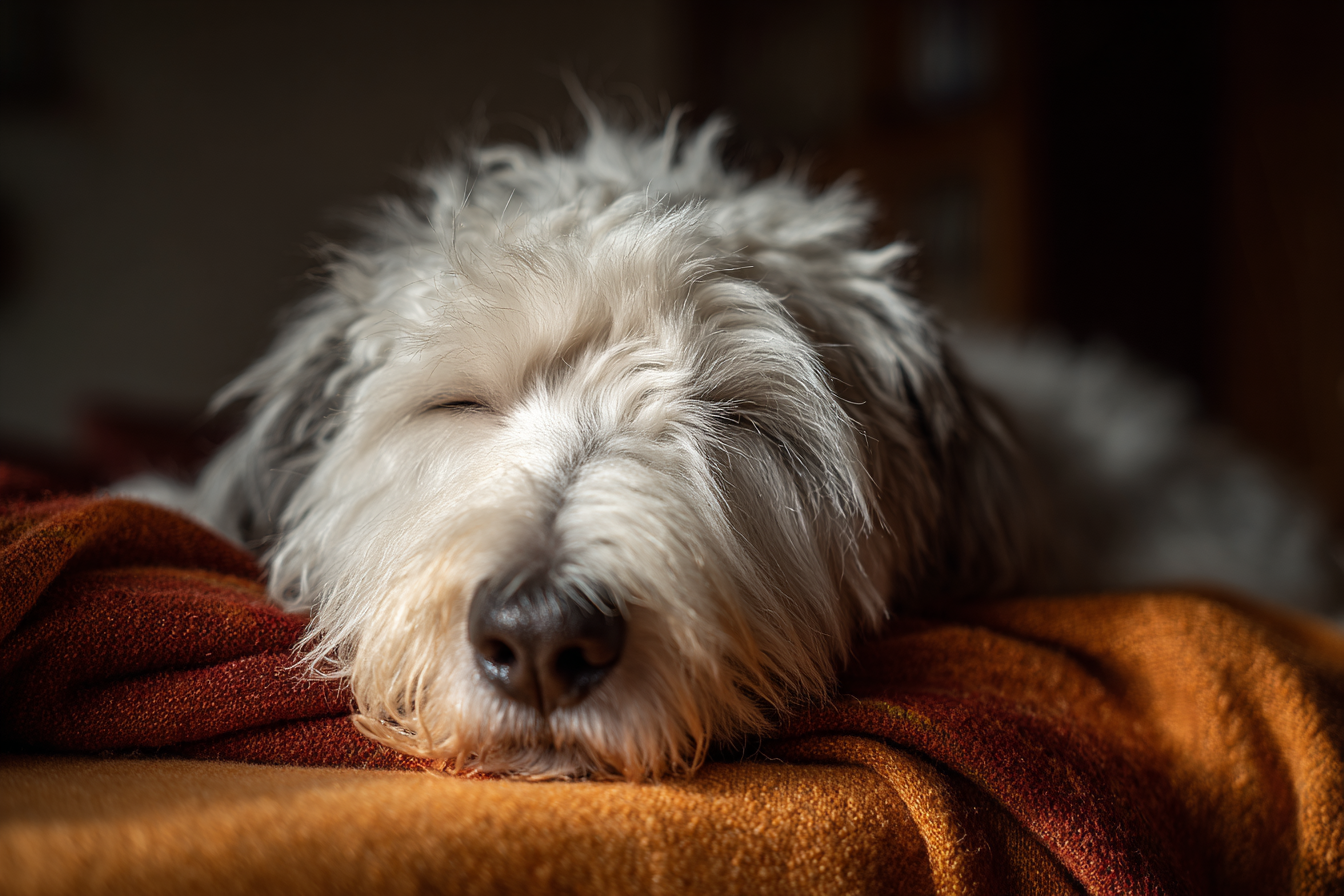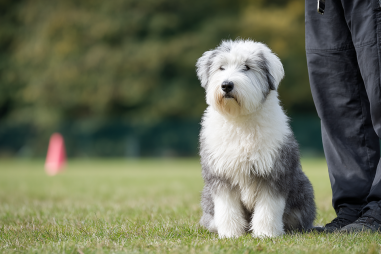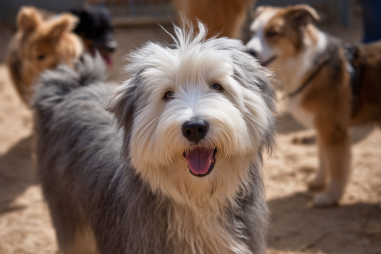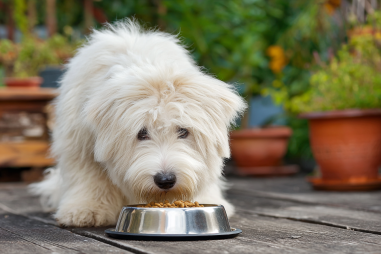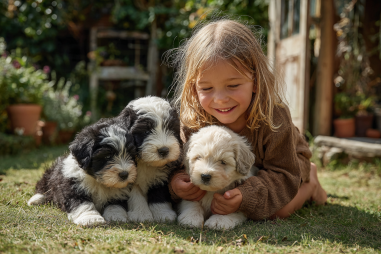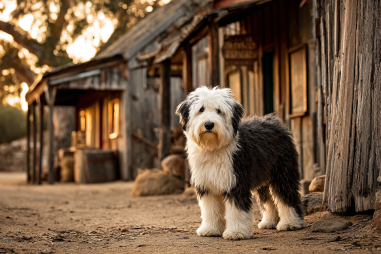As your beloved Old English Sheepdog enters their senior years, it’s natural to notice changes in their behavior, energy levels, and health. These gentle giants have a unique set of needs as they age, and providing the right care ensures they enjoy a happy, comfortable, and fulfilling life in their golden years. From recognizing the signs of aging to adjusting diet, exercise, and environment, this guide will help you navigate the special care your senior Old English Sheepdog deserves.
Signs of Aging in Old English Sheepdogs
Old English Sheepdogs typically begin showing signs of aging around 7 to 8 years old, though this can vary based on genetics and overall health. Recognizing the early signs of aging allows you to tailor their care appropriately. Common signs include:
- Decreased Energy: Your usually exuberant sheepdog may prefer lounging over vigorous play.
- Stiffness or Limping: Mobility changes may indicate arthritis or other joint issues.
- Vision and Hearing Loss: They might be slower to respond to commands or seem disoriented.
- Changes in Appetite: Either a decreased interest in food or increased pickiness can occur.
- Graying Fur and Skin Changes: While graying around the muzzle is common, you might also notice dry skin or lumps that require veterinary attention.
- Cognitive Changes: Some senior dogs develop canine cognitive dysfunction, resembling dementia, with symptoms such as confusion or altered sleep patterns.
Observing these signs promptly allows you to consult with your vet and adjust care to maintain your dog’s quality of life.
Adjusting Diet and Exercise
Nutrition and physical activity play pivotal roles in the health of senior Old English Sheepdogs.
Diet Adjustments
As metabolism slows in senior dogs, it’s important to provide a diet tailored to their changing needs. Here are some considerations:
- Lower Calories, High Nutrients: Senior dog food formulas typically have fewer calories to prevent weight gain, combined with balanced nutrients to support aging joints and immune health.
- Easy-to-Digest Ingredients: Aging digestive systems benefit from food that’s gentle but still nutritionally dense.
- Joint Support Supplements: Look for diets enriched with glucosamine, chondroitin, omega-3 fatty acids, and antioxidants to support joint and coat health.
- Hydration: Ensure your sheepdog has constant access to fresh water to prevent dehydration, which is especially important for seniors.
Exercise Adjustments
While your senior Old English Sheepdog might not have the same stamina as when they were younger, regular gentle exercise remains essential:
- Shorter, More Frequent Walks: Instead of long vigorous walks, opt for multiple shorter sessions to keep muscles active without overexertion.
- Low-Impact Activities: Swimming or walking on soft grass can be easier on aging joints.
- Monitor for Signs of Discomfort: Watch for limping, panting, or reluctance to move; these might indicate the need to reduce intensity.
Maintaining an active lifestyle helps with joint mobility, weight control, and mental stimulation.
Managing Arthritis and Mobility Issues
Arthritis is a common challenge for senior Old English Sheepdogs due to their size and breed characteristics. Managing this condition effectively greatly improves their comfort and mobility.
- Veterinary Diagnosis: Early detection through vet exams and, if necessary, imaging tests can guide treatment plans.
- Medications: Your vet may prescribe anti-inflammatory drugs or pain relievers to manage discomfort.
- Supplements: Regular glucosamine and chondroitin supplements can support joint cartilage regeneration.
- Physical Therapy: Controlled exercises, hydrotherapy, or massage therapy can enhance mobility and reduce stiffness.
- Assistive Devices: Using ramps, orthopedic beds, or supportive harnesses can help ease movement challenges.
- Weight Management: Maintaining a healthy weight reduces the stress on joints, so diet and exercise adjustments are crucial.
Combining these approaches tailored to your dog’s specific needs can help slow arthritis progression and improve their quality of life.
Regular Vet Visits and Health Monitoring
Frequent veterinary checkups become increasingly important as your Old English Sheepdog ages. Regular visits help catch health problems early and manage existing conditions effectively.
- Biannual Exams: Twice-yearly veterinary appointments allow for thorough physical exams, blood tests, urinalysis, and dental checks.
- Monitoring Chronic Conditions: Conditions such as hypothyroidism, heart disease, or kidney issues require ongoing management.
- Vaccinations and Parasite Prevention: Up-to-date immunizations and flea, tick, and heartworm prevention treatments remain important.
- Behavioral and Cognitive Evaluation: Share any concerns about changes in behavior or cognition with your vet for appropriate interventions.
Maintaining thorough communication with your veterinarian ensures your senior dog receives the best possible care.
Creating a Comfortable Environment
Adapting your home to accommodate your senior Old English Sheepdog’s needs can make a significant difference in their daily comfort and safety. Consider these tips:
- Orthopedic Bedding: Provide a supportive bed that cushions joints and reduces pressure points.
- Easy Access: Use ramps or low steps to help your dog reach favorite spots without jumping or climbing.
- Non-Slip Flooring: Place rugs or mats on slippery surfaces to prevent falls and injuries.
- Temperature Control: Senior dogs often feel cold more easily, so ensure their resting areas are warm and draft-free.
- Quiet Space: A calm, quiet area can reduce anxiety and provide a safe retreat.
- Accessible Water and Food Bowls: Position bowls at a comfortable height to reduce strain on neck and joints.
With thoughtful changes, your home becomes a welcoming sanctuary tailored to your dog’s golden years.
Mental Stimulation for Seniors
Just as physical health is important, keeping your senior Old English Sheepdog mentally engaged slows cognitive decline and enhances their happiness.
- Interactive Toys: Puzzle feeders and treat-dispensing toys challenge their problem-solving skills.
- Gentle Training Sessions: Short sessions help keep their mind sharp without causing frustration or exhaustion.
- New Experiences: Introducing new, low-stress environments or scents stimulates curiosity.
- Social Interaction: Safe playdates or visits help maintain social skills and reduce loneliness.
- Routine: A predictable daily schedule provides comfort and reduces anxiety in senior dogs.
Engaging your dog’s brain is as vital as caring for their body during older age.
Providing Loving Care Every Day
Caring for a senior Old English Sheepdog is a rewarding journey filled with moments of tenderness and bonding. By recognizing the signs of aging, adjusting their diet and exercise needs, managing mobility challenges, staying proactive with veterinary care, creating a cozy environment, and nurturing their mental well-being, you honor the years of companionship they’ve given you.
Remember, patience and gentle attention make all the difference. Celebrate each day with your loyal friend, offering comfort, love, and dignity through all stages of their golden years.

